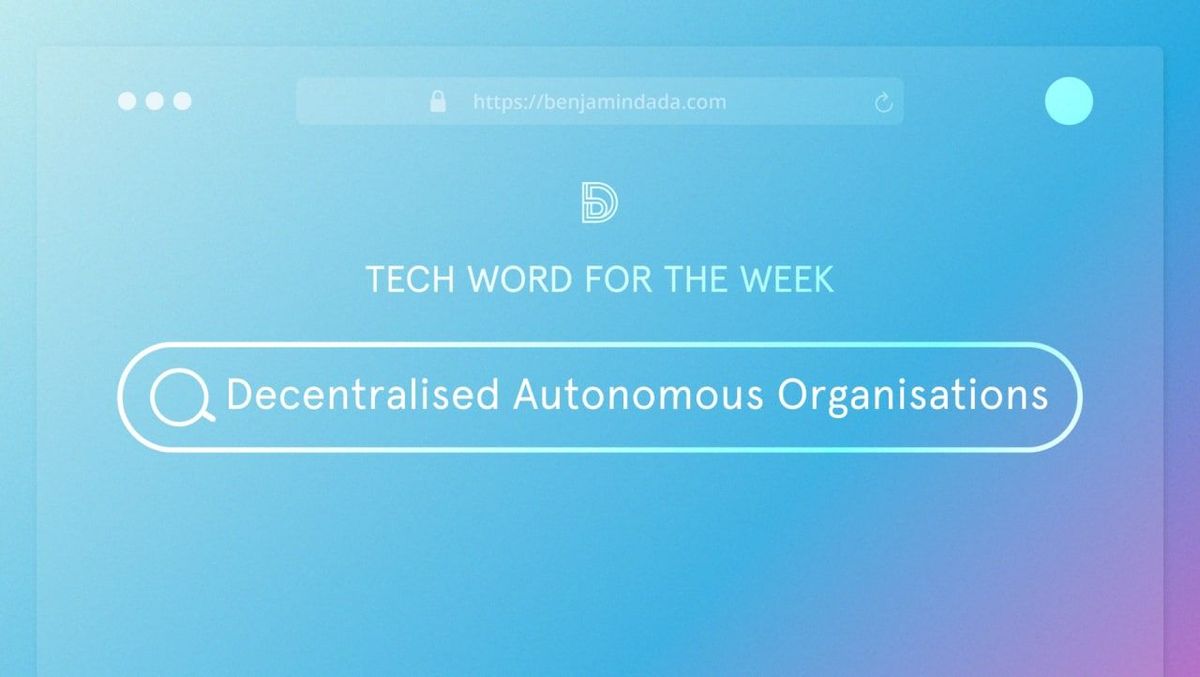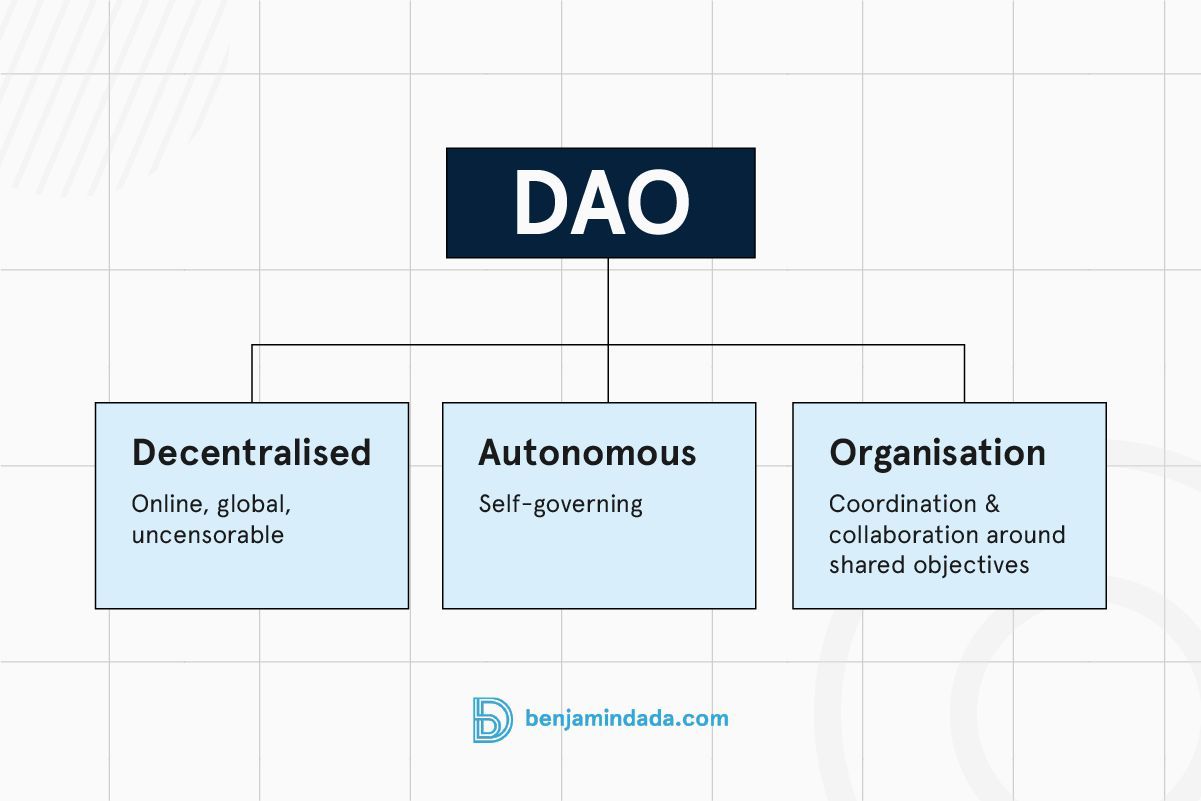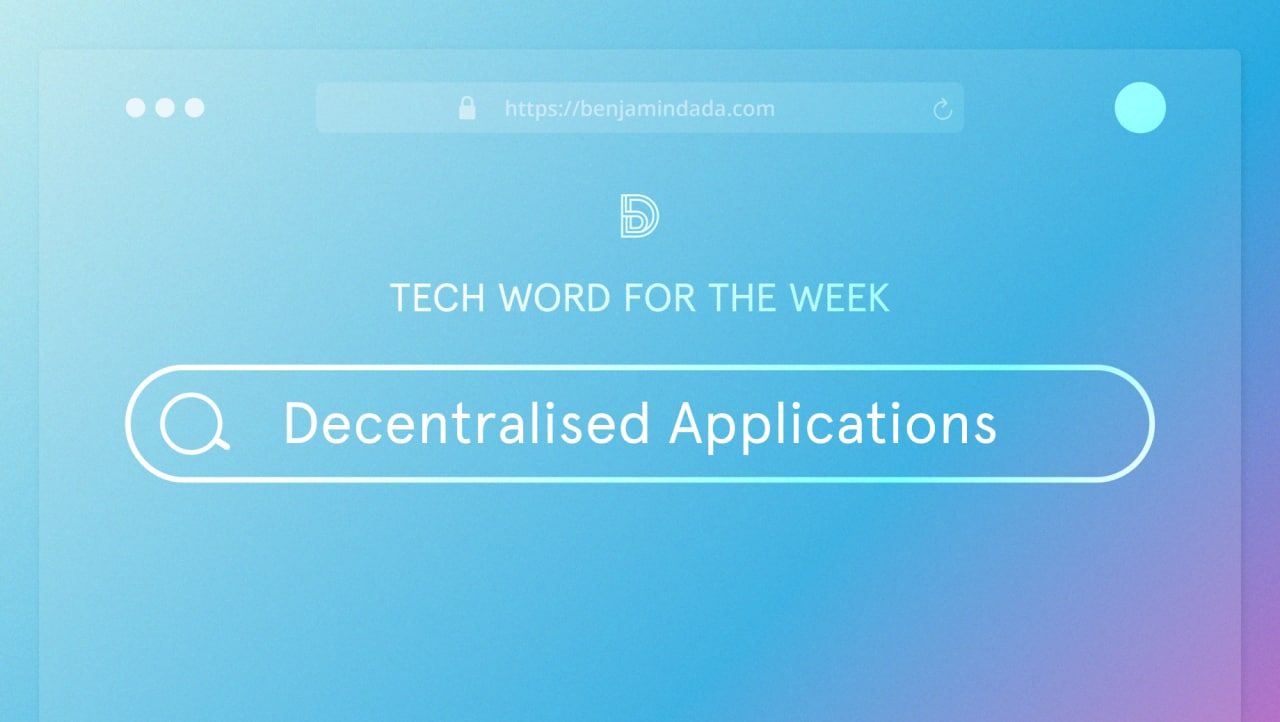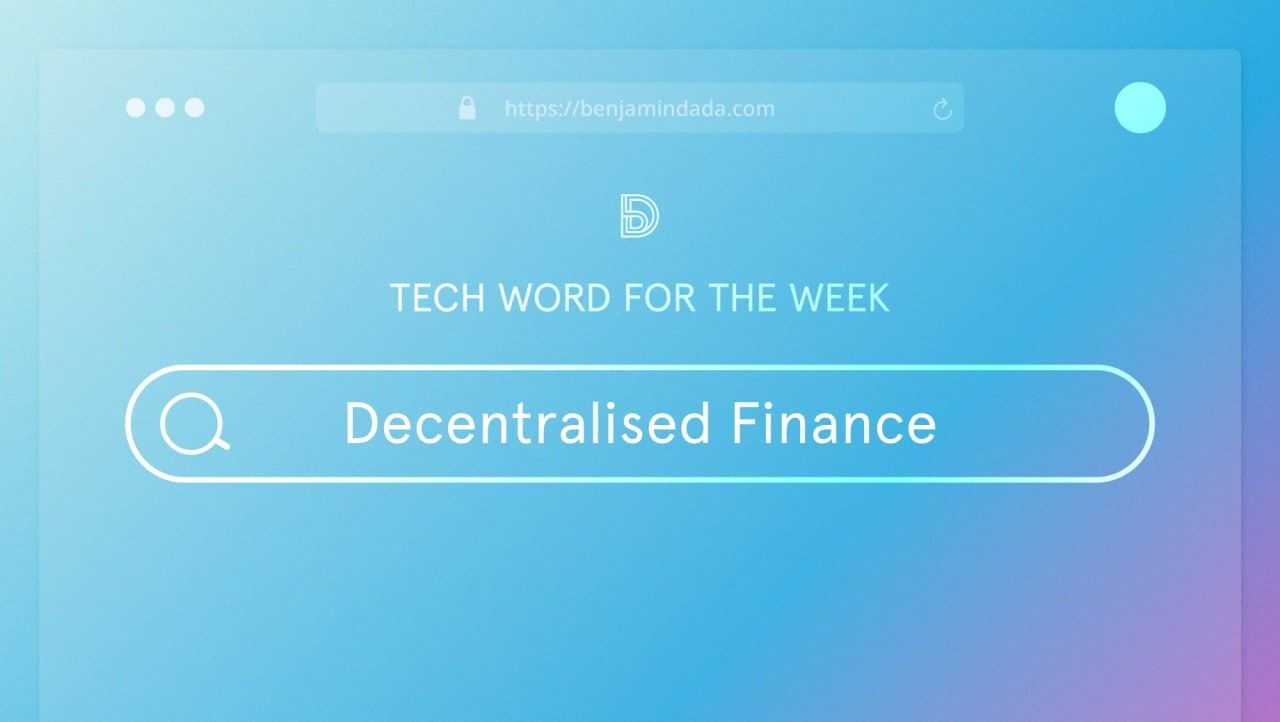Decentralised Autonomous Organisations (DAO)
Decentralised Autonomous Organisation (DAO) are entities represented by rules encoded as a transparent computer program, controlled by the organisation members, and not influenced by a central government.

Imagine a community where everyone is both a member and owner. Where anyone can participate from anywhere across the globe but no central governing body. Where governing rules are established by everyone and all activities are encoded on a blockchain.
All of these and more are what DAOs are making possible. What then is a DAO?
Let’s dive right in.
D: Decentralised (Online, global, uncensorable)
A: Autonomous (Self-governing)
O: Organisation (Coordination & collaboration around shared objectives)

Decentralised Autonomous Organisation (DAO) are entities represented by rules encoded as a transparent computer program, controlled by the organisation members, and not influenced by a central government.

They are internet communities with a mission such as running a business, crowdfunding, or charity but no central authority. Rules governing the community are made from the bottom-up and they are all enforced on a blockchain. It's an organisation, quite alright, but not as we know it.
Wikipedia defines DAO as an “organisation represented by rules encoded as a transparent computer program, controlled by the organisation members, and not influenced by a central government. As the rules are embedded into the code, no managers are needed, thus removing any bureaucracy or hierarchy hurdles.”
Vitalik Buterin, the founder of Ethereum which was a foundation for DAO defines it as “an entity that lives on the internet and exists autonomously, but also heavily relies on hiring individuals to perform certain tasks that the automaton itself cannot do.”
Rather than having service providers (like the Big techs) regulating operations and acting as intermediaries, DAOs are run on open-source software. It is a globally-distributed network of individuals working together on common goals.

There are built-in treasuries which are only accessible with the approval of members. Also, decisions are made through proposals the group votes on. Members typically pull money into a single cryptocurrency wallet and collectively manage it.
Examples of communities that can be built on DAOs are freelance networks that pool funds to pay for software subscriptions, charitable organisations where members approve donations, venture capital firms owned by a group and so many more.
Let’s isolate the acronyms and further dive deep into them:
Organisations: Humans have always organised into groups, tribes, squads, gangs, crews, teams, companies and other forms to get things done through collective action. DAOs are the same. DAOs groups include developers, investors, charities, local initiatives, etc.
Members are enrolled by ownership of the DAO's 'token' issued on a blockchain The token acts much like a digital membership card, enabling access to gated content, voting rights and other benefits.
Autonomous
Here’s one of the ways DAOs differ from conventional organisations like we know them. Most conventional organisations have a central authority (like a commission, corporation, central bank or business bureau) who regulate and govern all activities.
Conversely, the infrastructure of a DAO is autonomous. The software can be run on any computer, anywhere in the world, without seeking permission from any authority. DAOs can set rules by voting or referencing the founding written document.
Decentralised
Payments on DAOs are permissionless. Members are free to transact from anywhere at any time. The infrastructure can be accessed by thousands of computers from around the globe who check on each other.
Also, for their workforce DAOs actively recruit without discrimination of location, colour or race. However most DAOs are simply open to contributions from anyone willing to give their time and effort in exchange for DAOs token.

Pros of DAO
- Decentralisation
DAO gives every member a voice that can be heard. The full automation of the blockchain system allows members to vote with demonstrable honesty and execute the agreed upon decisions.
- Collective Ownership
Unlike traditional organisations where there is a founder or co-founders who supervises and manages all activities DAOs hands the control over to members. This prevents the issue of founders absconding with investor’s money.
- Active participation by members
An underlying mechanism that makes DAOs thrive is the idea that each participant has “skin in the game”. Using DAOs governance tokens require users to cast their votes by spending their tokens. This allows them to directly affect the future of the DAO.
Cons of DAO
- Multiple Jurisdiction
DAOs are distributed across multiple jurisdictions and this implies that there’s no legal framework for them. Any legal issues that arise will likely require dealing with numerous regional laws in a complicated legal battle.
- Slow Decision Making
As DAOs scale, getting everyone to vote on proposals promptly can be a challenge. Due to different time zones and investor priorities, keeping DAO participants up to date and engaged will be challenging.
- Security
Although DAO can be launched with a few lines of code, security remains vulnerable as it requires significant technical expertise to implement. Also, it requires a well-run tech stack to operate effectively, these can be cumbersome and expensive to keep best security practices implemented.
Key Takeaways
- Decentralised Autonomous Organisation (DAO) are entities represented by rules encoded as a transparent computer program, controlled by the organisation members, and not influenced by a central government.
- Pros of DAOs are decentralisation, collective ownership, and active participation of members.
- Cons of DAOs are multiple jurisdictions, slow decision making, and security.







